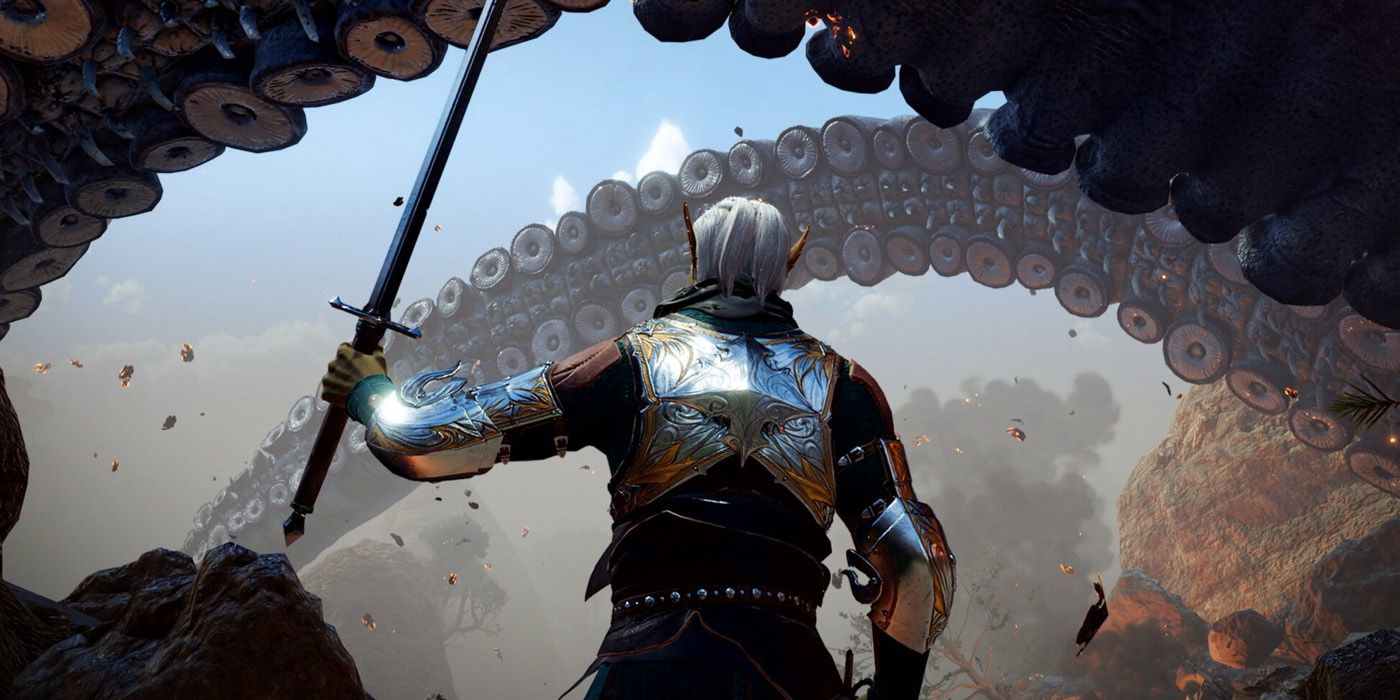
In Baldur's Gate 3, players get thrust in the middle of a mind flayer invasion of Faerûn. They need to force a parasite out of their bodies before it transforms them into mind flayers themselves. Such a complicated premise fully represents the craziness of Dungeons and Dragons games as a whole. Larian Studios' take on narrative in RPGs may make this Baldur's Gate iteration their most immersive RPG yet.
Larian Studios' current take on the combat and customization mechanics indicate a take on D&D 5e's progression system almost identical to the TTRPG's. Thankfully, early fans of Baldur's Gate 3 can look at 5e's class system to get a few insights on how they should approach their Baldur's Gate 3 builds.
10 Plan And Stick To A Playstyle

Thanks to BG3's character creation process, players have an overall idea of how their character should play in the game. For instance, the Fighter's Strength focus will likely make them reliant on physical combat, or perhaps the Half-Elf's Charisma bonus suits them well for CHA-oriented spellcasters (e.g., Bard, Warlock).
In turn, players who plan on making powerful builds should have a playstyle in mind. When it comes to D&D optimization, dabbling into "a bit of everything" results in a weak build.
If players want to create an all-out spellcaster, increasing Intelligence is the way to go. Likewise, any melee character won't go wrong with a high Strength stat.
9 Play With The Endgame In Mind

Like in D&D, BG3 players need to consider the endgame when creating a character build. It helps to plan levels ahead when building a character or a party. Multiclassing adds a whole layer of confusion to creating great builds in BG3. After all, when Multiclassing gets released with the main game, players can now choose to level up their original Class or get a new one and split their overall levels.
Players need to tread carefully when Multiclassing. When they Multiclass into another Class, they immediately miss out on the endgame benefits of a maxxed out Class as per what their descriptions detail. As such, it's ideal to Multiclass into a Class that taps into a character's highest Abilities to reap the best benefits.
8 Races, Subraces Maximize Classes
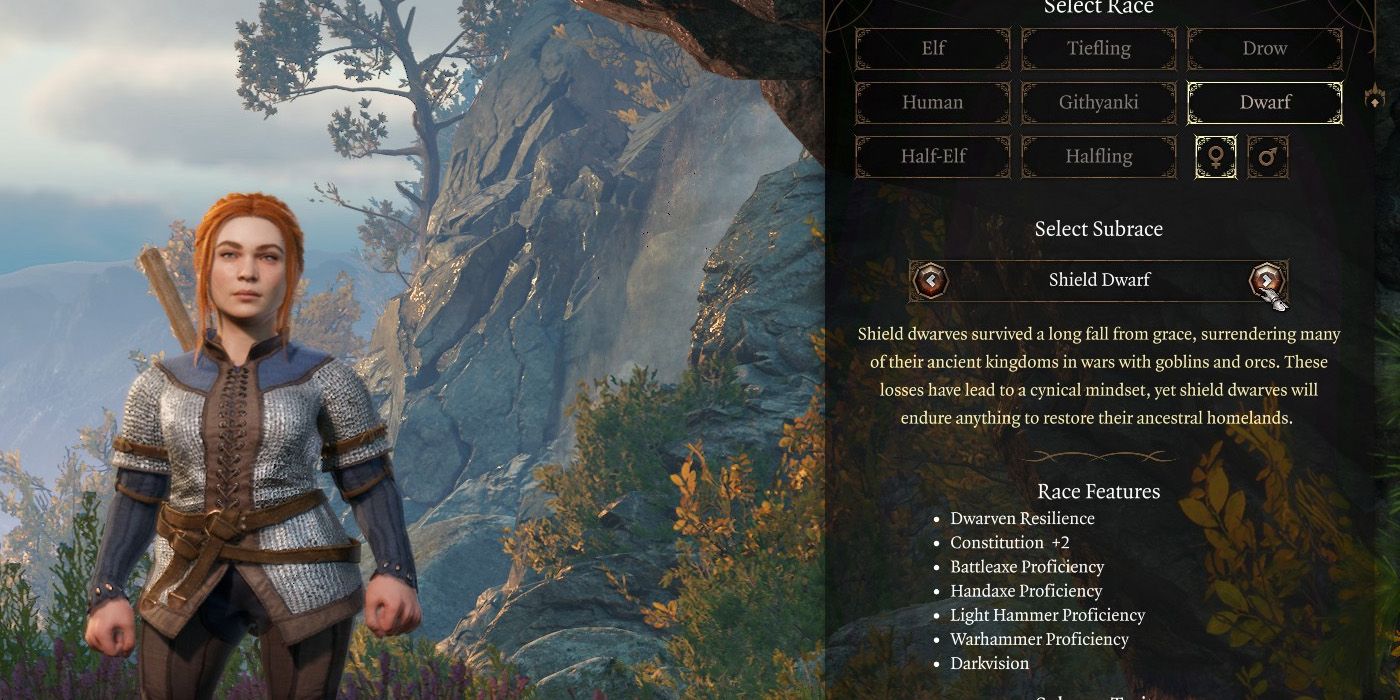
In BG3, player characters have the option to become a part of a Race and a Subrace within that species. As with D&D, these options provide characters with unique Racial Features (e.g, Abilities and Proficiency), and Racial Traits, as well as Ability Modifiers. Ordinarily, players can ignore most of these elements to enjoy the roleplaying aspect of BG3. However, pro players might want to capitalize on a Race/Subrace's Ability bonuses for Classes of their choosing.
For instance, the +2 Dexterity of the Halfling can make them great Rogues and Rangers. Meanwhile, while the +2 Dexterity of the Elf also makes them great Rangers and Rogues, the High Elf Subrace's +1 Intelligence can lead to a Wizard with decent dodging.
7 Classes, Subclass Dictate Combat Performance
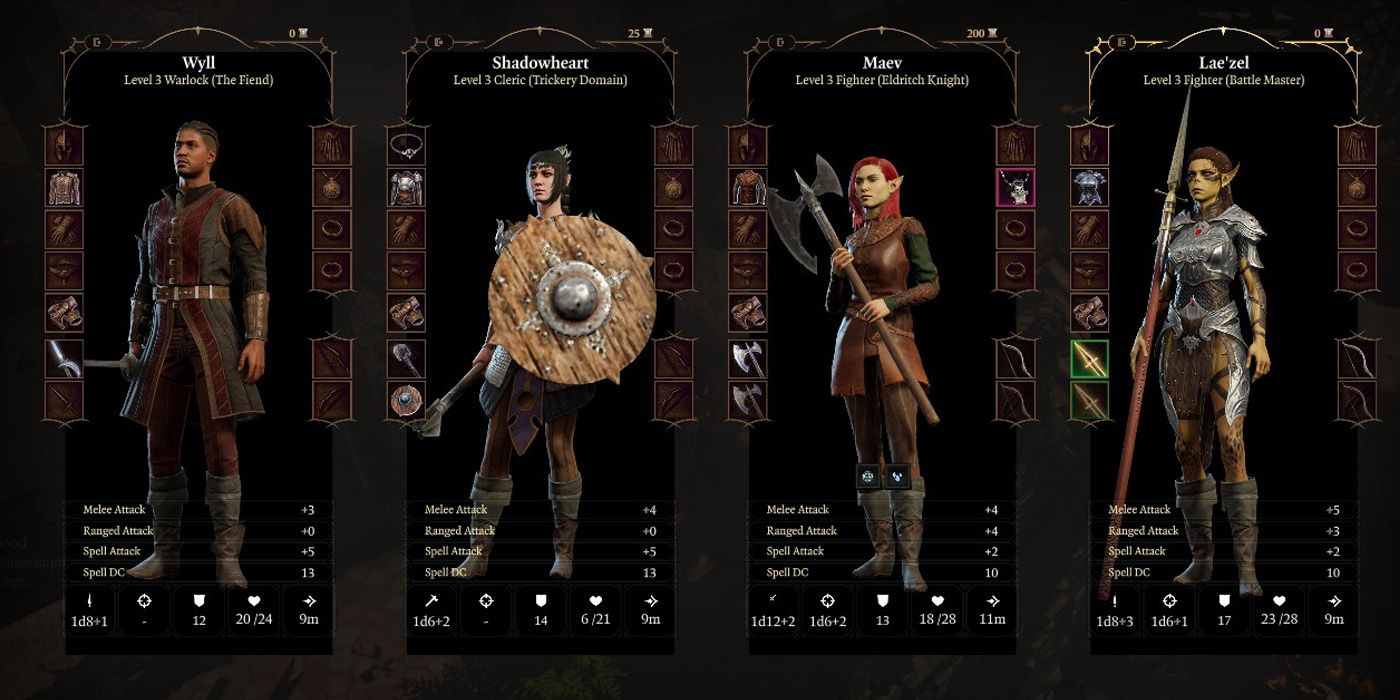
Classes in both D&D and BG3 dictate the min-maxer's best path towards victory. After all, despite playing into stereotypes, the base Classes help players zero in on a general playstyle. For instance, Rogues rely on speed and stealth as single-target DPS, while the fragile Warlocks and Wizards stay behind as glass cannons.
Subclasses further hone these playstyles into specific strategies. For instance, the Fighter can Tank for the party with their great HP and defense. However, an Eldritch Knight Fighter can become a versatile DPS thanks to the extra spells they get.
Meanwhile, while a Life Domain Cleric can focus on healing allies, a War Domain Cleric has the opportunity to Tank for the party with great offensive options.
6 Backgrounds Should Emphasize Abilities
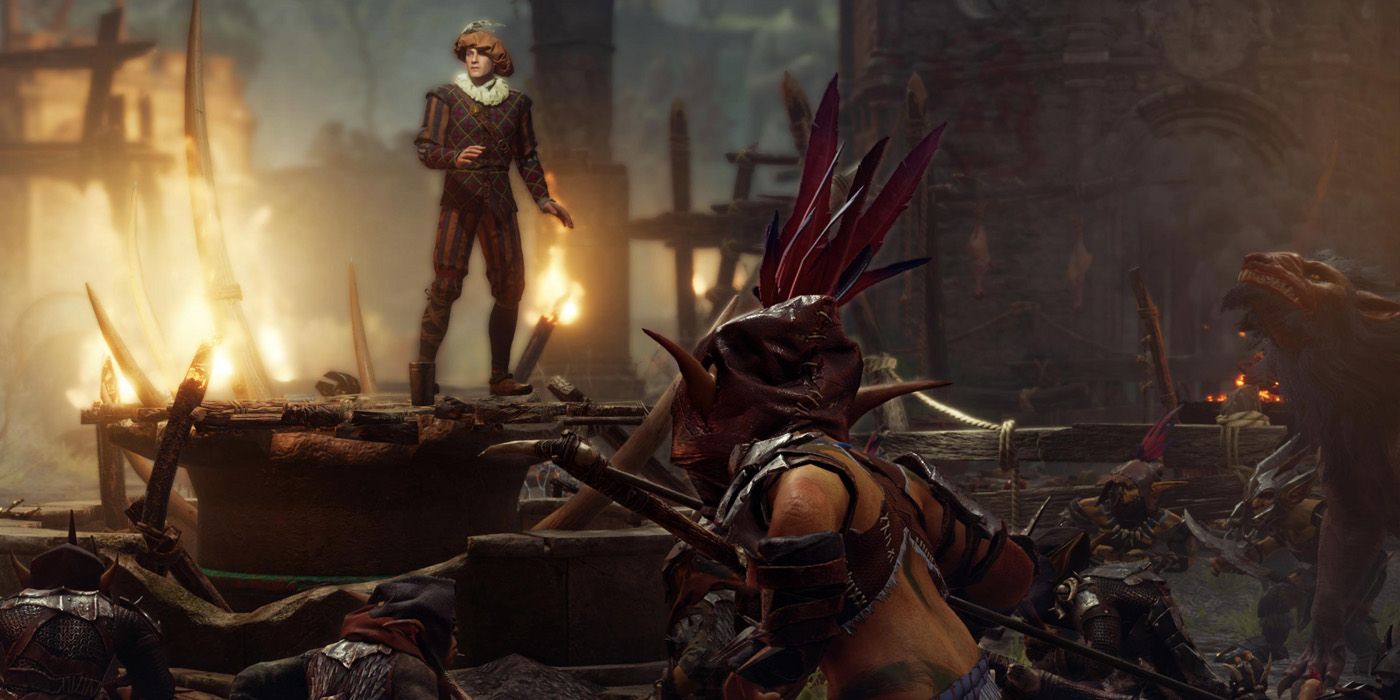
Players can solidify the roleplaying aspect of their BG3 characters with the help of Backgrounds. In a typical D&D game, Backgrounds help elaborate a character's overall backstory and grounds them in the context of the world. However, those after making the best builds in BG3 should pick Backgrounds that provide Proficiencies to Skills in Abilities they have high Stats in.
For instance, the Soldier Background works well for Strength-oriented classes like the Fighter as they get Proficiency in Athletics (STR). Likewise, the Urchin Background becomes a great match for Rogues as they gain Proficiency with Sleight of Hand (DEX) and Stealth (DEX).
5 Get Smart With Proficiencies
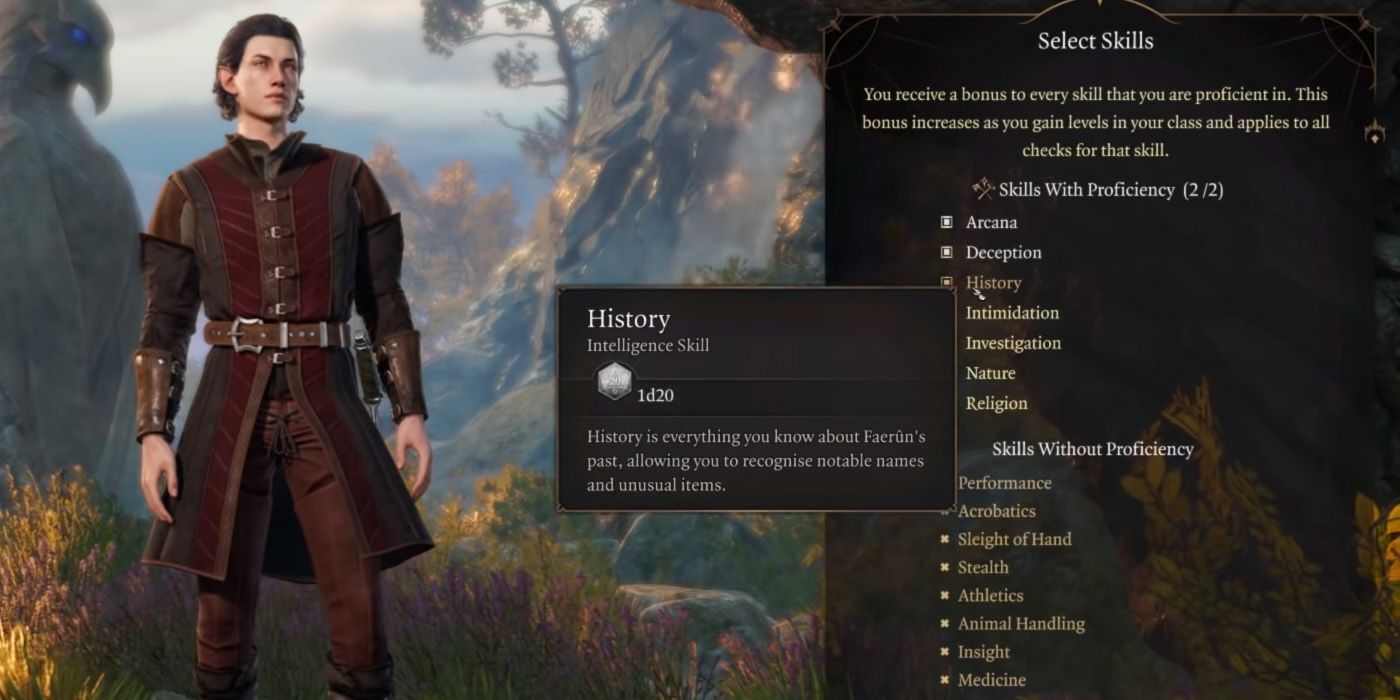
Aside from Ability Modifiers, players can also add a level-scaled Proficiency Bonus to rolls that use stats (e.g. Skills) the character is Proficient in. In turn, players should ideally choose Races, Backgrounds, and Classes that give Proficiency to Skills attached to the character's higher Abilities. That way, players add both the Ability Modifier and Proficiency Bonus to rolls, thereby resulting in higher outcomes
However, players should also consider being Proficient in Skills attached to their lower Abilities. As players know, Skills can receive negative modifiers if they fall under a Dump Stat. Thanks to a well-placed Proficiency, these Skills can end up with a zero modifier instead of a detrimental negative.
4 Consider Using Feats To Diversify Playstyle
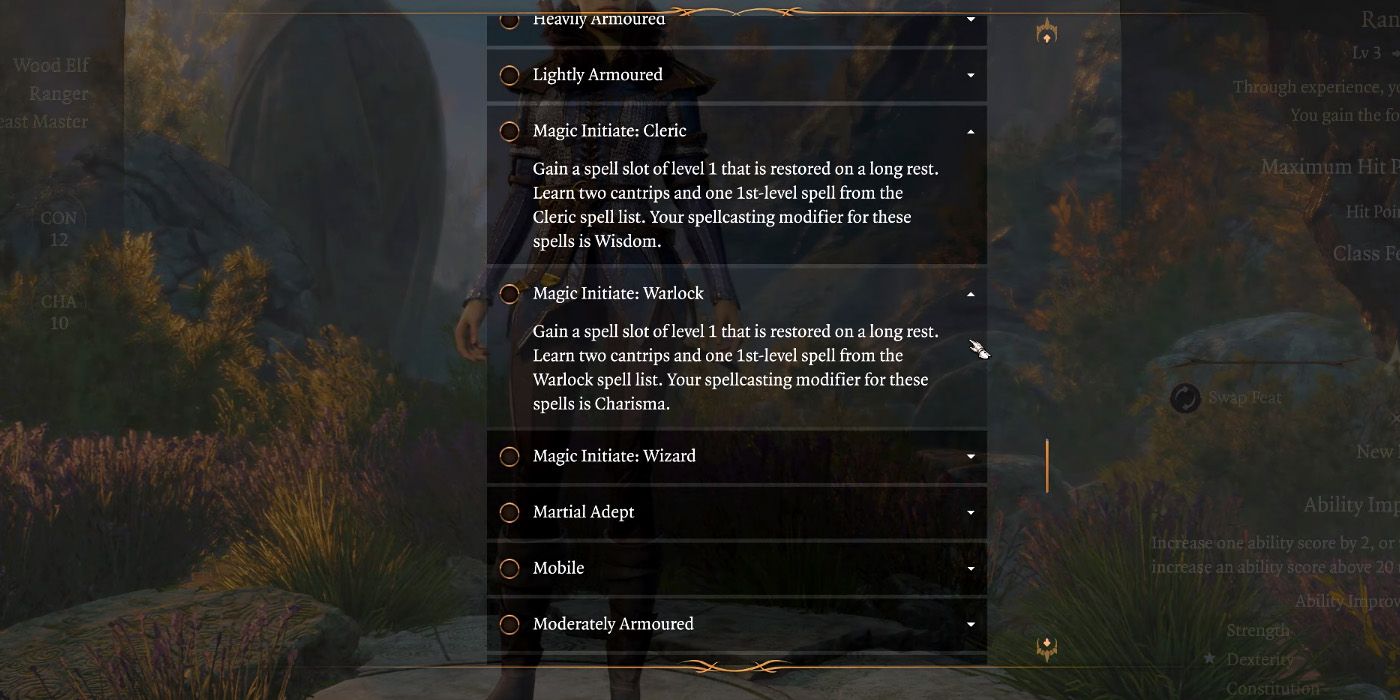
In D&D 5e, most classes except the Fighter allow characters to acquire an Ability Improvement or a Feat every four levels. Unlike Ability Improvements, Feats provide unique perks and combat mechanics to any character. In turn, players can capitalize on Feats to create the best builds for the party. Interestingly, the most efficient Feats to use depend on the player's needs.
Players can add Ability points with a twist (e.g., Athlete), improve Proficiency (e.g., Lightly Armoured), or improve base statistics (e.g., Tough increases HP, Mobile increases Speed). Likewise, players can get basic Spells (Magic Initiate) and basic Maneuvers (Martial Adept) to improve their combat options.
3 Consider Ability Improvements Over Feats

Given the playstyle offerings provided by Feats, players might opt for these instead at Level 4 instead of Ability Improvements. Thing is, the right Ability Improvements can make the difference between stronger base attacks, better defenses, and more combat options.
In BG3, glass cannons such as Wizards and Warlocks may benefit more from Ability Improvements instead of Feats. The physical combat-focused list of Feats would provide little-to-no benefits to the magical specializations of the two Classes.
However, adding Ability points to Intelligence (Wizard) and Charisma (Warlock) can easily boost their combat capabilities and may improve the performance of the Skills under them. Increasing a bit of Dexterity and Wisdom can help most spellcasters evade deadly spells and effects.
2 Optimize Based On Party Composition

As with MMOs, the strongest D&D builds come from maximizing a character's kit to fulfill their function in the party. In BG3, the best builds complement the entire party composition. As such, players should optimize their builds depending on whether they need to fulfill a Tank, a DPS, or a Healer role.
Players can create an optimal character based on the three other companions they want to pick. Likewise, players can create a custom character of their own desires and pick their companions based on their needs.
It's ideal for parties to have a Tank like a War Cleric that use powerful weapons to deal and take damage. That way, they can have room for two DPS roles - one single-target, and one AOE-based - and one Support or Healer.
1 Talking, Dialogue Still Matters

Thanks to BG3 following most of D&D 5e rules, Larian Studios can apply their narrative prowess in the Divinity series to dialogue options in the game. Additionally, as an RPG, BG3 players who also play D&D should remember that the way they interact with NPCs matters just as much as their combat skills. In turn, players should consider playing into the key strengths of their character's social skills.
For instance, their Rogues shouldn't hesitate taking advantage of Deception to lie to NPCs to avoid suspicion. Likewise, characters with a Soldier background can use Intimidation to scare NPCs into revealing information. Should the opportunity arise, players shouldn't neglect to boost these skills. After all, a smooth answer can make the difference between a nice time or deadly combat.
from Game Rant - Feed https://ift.tt/2Jo3IEn
Comments
Post a Comment